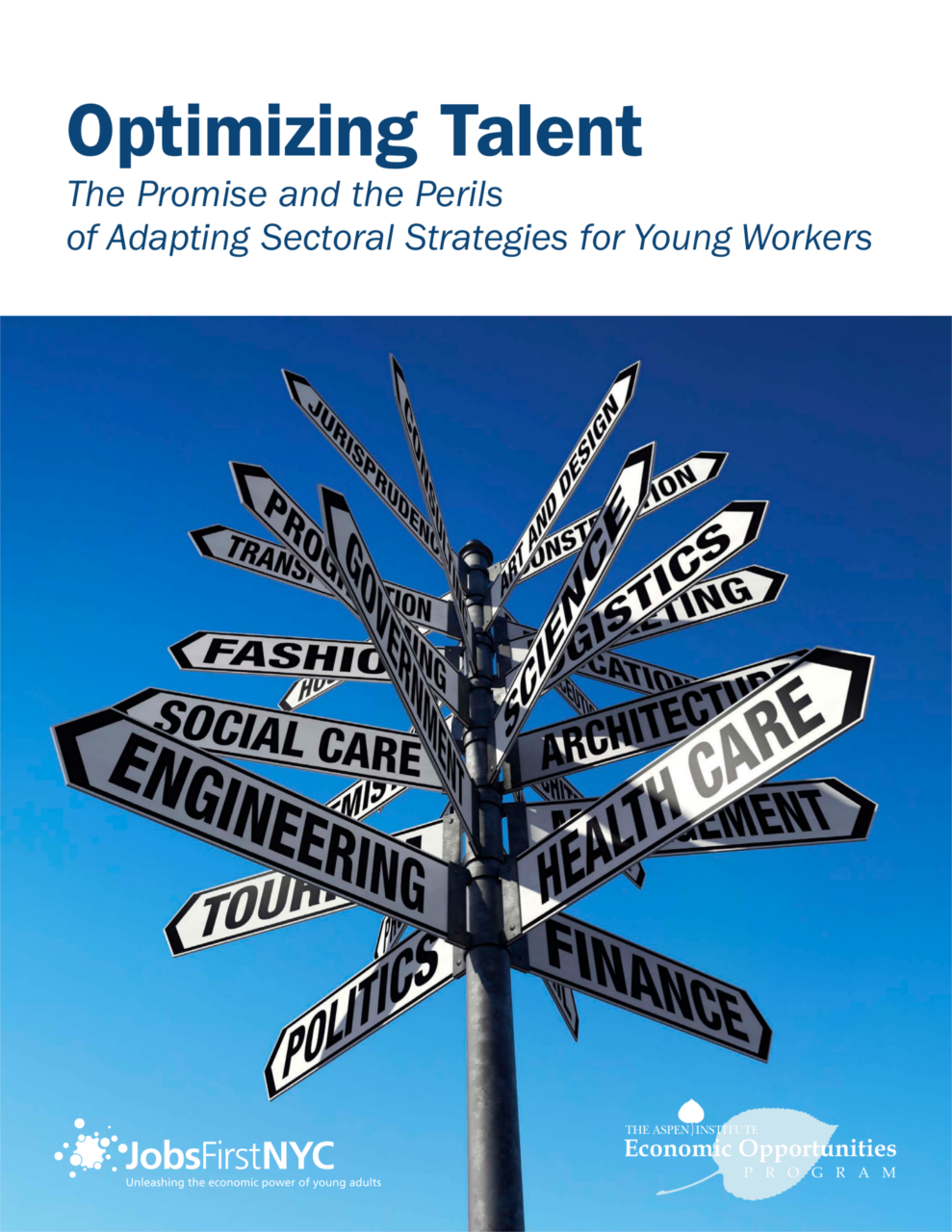Long-term self-sufficiency means more than just a job. Those at the bottom of the labor market—especially young adults with limited education who face high rates of unemployment—need in-demand skills, a clear career path, and solid supports. In recent years, sector-based strategies have yielded promising results for moving low-income jobseekers and workers into living wage positions. JobsFirstNYC and the Aspen Institute Economic Opportunities Program (EOP) are pleased to release Optimizing Talent: The Promise and the Perils of Adapting Sectoral Strategies for Young Workers. This report looks at sector programs and the experience of a network of young adult and sector practitioners – including JobsFirstNYC’s Young Adult Sectoral Employment Project (YASEP) initiative – to answer the question: how can we most effectively adapt sector strategies for young adults? Sectoral initiatives bring together a mix of businesses, community-based organizations, unions, community colleges and others, often led by a workforce development organization, to create training and placement programs for a specific industry or set of employers. Drawing on the lessons from sectoral collaborations, this brief explores how:
- Policymakers and funders can help young people find alternative pathways to jobs, job stability, and job advancement.
- Community-based and young-adult-serving organizations can play a critical role in connecting young people to employment.
- Collaboration across organizations is essential, and financial incentives to support partnerships must be built into future efforts.
- Sectoral strategies can yield even greater gains when they go beyond strategies focused on job placement to partnering with employers to identify ways to improve workers’ conditions while also supporting business success.


